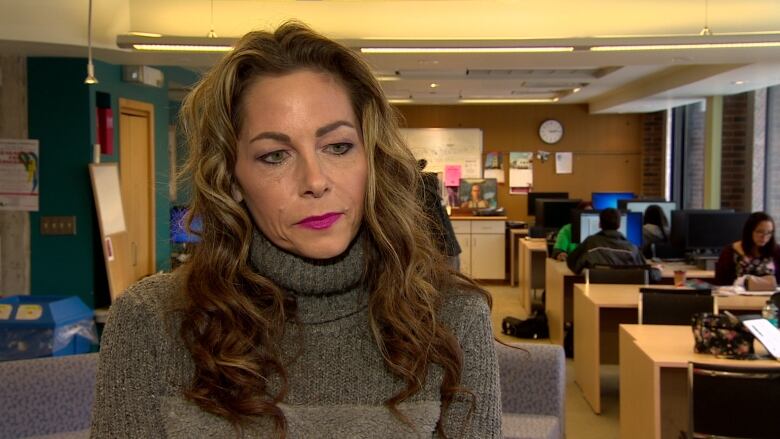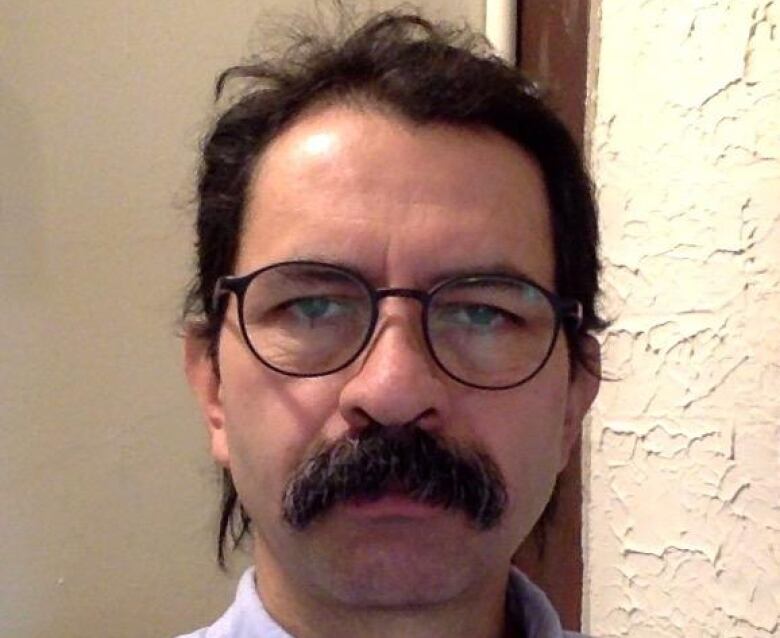'A teaching moment': Manitoba academics join hundreds in Scholar Strike for Black Lives Canada
NBA player boycott inspires educators to cut classes short, discuss racial injustice in lieu of curriculum

Some critics panned the recent player boycotts of playoff games in the NBA, MLB and NHL and suggested the move by the affluent athletes wouldn't result in much change.
That turned out to be wrong, astheir demands and action continue toinspirea range of spinoff actions outside arenas and stadiums, including one among Canadian academics.
The Scholar Strike for Black Lives in Canada is a group of academics taking part in labour action in solidarity with the Black Lives Matter movement.
On Wednesday and Thursday, hundreds of academics will stop their regular classes and offer public teach-ins instead. The list includes at least 19 professors at the University of Manitoba and University of Winnipeg.
"So many times we say when racialized violence happens, 'This is terrible, this is wrong,' and then we go on with our lives," said Jacqueline Romanow, chair of Indigenous studies at the University of Winnipeg.
"I think that people have gotten tired with this going on with our lives without really effectively changing anything."
Protests spread across the world after George Floyd, a Black man living in Minneapolis, Minn., was murderedon May 25 during his arrest. Scene footage showed officer Derek Chauvin holding hisknee against Floyd's neck for nearly eight minutes before he died. Four officers including Chauvin have been charged.
Then, on On Aug. 26, players in the NBA slated to take the court instead protested the Wisconsin police shooting of Jacob Blake, a Black man, by sitting out the playoff games.
The unprecedented move spurred similar actions in Major League Baseball, followed by the National Hockey League and other pro sports.
Calls for change reached the academic world in the U.S. and that spread into Canada.
'Disturbing racist experiences'
As an Indigenous person, Romanow has experienced and seen racism in Canada, as have her students.
She just finished a study in the spring looking at over 100 Indigenous students' experiences with racism.
Romanow said three-quarters of them had "really disturbing racist experiences in their daily lives." Every man she spoke to had experienced negative, racist or intimidating encounters with police and the justice system, she said.
By denying that there is a problem, you just perpetuate the problem."-Germn Avila-Sakar
"I was really, really disturbed about it, and I have two sons myself so I am worried about their lives every time they go out," she toldCBCInformation Radiohost Marcy Markusa.
Romanow said educators and researchers aren't going to fully stop what they do in universities and colleges as part of the action. Rather, she said post-secondary institutions are meant to be places where students are engaged with important societal ideas.
She won't be teaching one of her regularly scheduled remote video courses. But students will be notified about that and provided resources on the topics of racial injustice, informed on how they can get involved in the conversation and engaged in demanding change.
'Systemic racism and abuse of power'
Some university professors will be incorporating conversations about race into their lectures, too.
"There is very little that we're doing as a society," said Germn Avila-Sakar, associate professor in the department of biology at the University of Winnipeg.

"I think that will bring more awareness to the problem of systemic racism and abuse of power, including abusive behaviour by police against Black people and Indigenous people in Canada and other parts of the world."
Avila-Sakar planned to cut short two of his first lectures of the year on Thursday. During part of that time, he intendsto discuss the rationale behind the decision with his students and highlight that racial injustice and police violenceisn't only present south of the border, he said.
"I've been also sometimes thinking that, 'Oh, you know, the problem is worse in the U.S. and we're OK here,' but we're not, we have racism in many ways," he said.
"The fact that Indigenous people were not even mentioned a few months ago when things were flared up with the [killing] of [George] Floyd ... that made me think we are part of the problem, and by denying that there is a problem, you just perpetuate the problem."
Romanow said it's the role of educators' to help drive some of these points home.
"We're just finding ways to turn this into a teaching moment," she said.
"We have to think about the world that we want and then we have to take the action to make sure that that's what we get."
With files from Rachel Bergen, Wendy Parker and Bryce Hoye












_(720p).jpg)


 OFFICIAL HD MUSIC VIDEO.jpg)
.jpg)



























































































